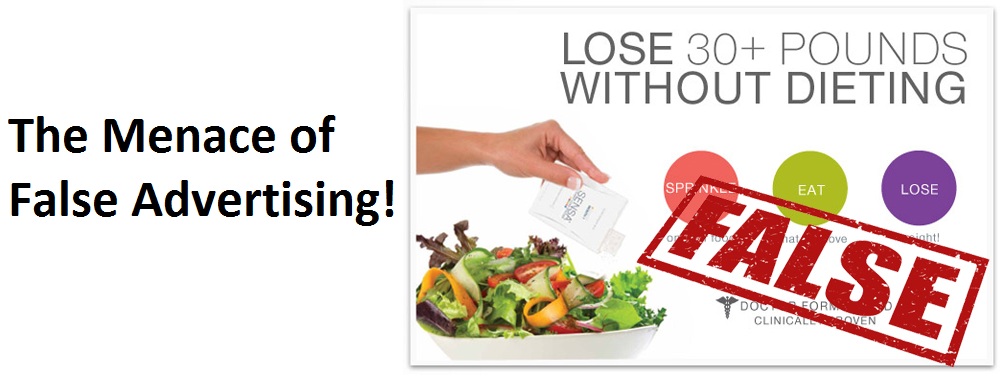Govt. Bringing New Law To Put A Stop To False Advertisements!
False advertisements are potentially harmful if they provide misleading information regarding food and edibles.

Advertisements are one of the greatest influencers in the Indian consumer market. From smartphones to chyavanprash, everything sells when endorsed by celebrities or advertised strongly enough.
This is true for everybody, from metro cities to the smallest of villages. Nobody is impervious to the charms of a well-made advertisement.
In 2016, the newspaper advertising spend in India alone was forecast to be around 3.25 Billion USD. That was last year and only for newspaper advertisements.
It is no wonder then that advertisers sometimes indulge in overstating facts and giving misleading or downright false information in order to catch attention.
How widespread is this trend?
We investigate.
The Menace Of False Advertisements
Companies think it’s a fair game to inflate capabilities or overstate facts about their products while advertising them. It is a part of India’s “Chalta hai” attitude. No one thinks it is wrong and it’s almost a standard practice.
Now these ‘embellishments’ can be harmless. E.g. a smartphone manufacturer inflating their smartphone’s battery performance and then mentioning something like “test conditions…” in very fine print, in a corner.
On the other hand, false information regarding so-called health products, which can potentially harm your health is a more serious breach of trust.
Recently a news website has reported that India’s advertising standards body, ASCI (Advertising Standards Council of India) has upheld 114 complaints in the month of August alone. The Customer Complaints Council (CCC) of ASCI had received 193 complaints, out of which 114 were upheld.
Out of these 114 complaints, 51 were from healthcare category, 31 were from education sector, 17 from food and beverages industry, followed by 5 from personal care segment and 10 from other categories. The parties found guilty include some big and well-known names in the industry.
These are mind-boggling numbers. What is the government doing to keep this menace in check?
Government Is Cracking The Whip: Bringing Stricter Law
Prime Minister, Mr. Modi has said that the Government is all set to bring in a new law to crack down on false and misleading advertisements. It will also set up a central authority to expedite redressal of consumers’ complaints.
The PM spoke about this new law while speaking at an international conference on consumer protection. He said that this law has been in the works for three years. It is now awaiting Cabinet approval and will be introduced during the Winter session of Parliament.
The new law imposes a fine of up to Rs. 50 lakh and a ban of up to 3 years in case of a misleading or false endorsement by a celebrity. The manufacturers/advertisers will face a comparable fine and an appropriate jail term for a similar offence.
Speaking at the conference, the PM said,
“Today we are in the process of enacting a new Consumer Protection Act keeping in view business practices and requirements of the country . The proposed act lays great emphasis on consumer empowerment”
“Stringent provisions are proposed against misleading advertisements. A Central Consumer Protection Authority (CCPA) with executive powers will be constituted for quick remedial action”
“Protection of consumer interests is a priority of the government.This is also reflected in our resolution of the New India. Moving beyond consumer protection, new India will have best consumer practices and consumer prosperity”
Consumer Empowerment
According to the PM, the proposed law is specifically made for consumer empowerment.
Consumer affairs minister Ram Vilas Paswan said,
“We are changing the law to simplify the process of grievance redressal and for faster resolution. Consumers will be able to file cases in Consumer Commission online and from the place of their residence rather than from the place of purchase”
CCPA will be the first ever executive authority to take care of consumers’ interests. While the Consumer Commission can accept individual consumer complaints, CCPA will have the power to initiate class action against a product or service impacting a group or a large section of consumers.
Even the UN Secretary General, Mukhisa Kituyi has raised this issue at an UN conference. He called for “nurturing consumer privacy and empowering vulnerable consumers with digital literacy amid growing online trade globally”.
Hopefully, the new law is successful in beating down the menace of false and misleading advertisements.
